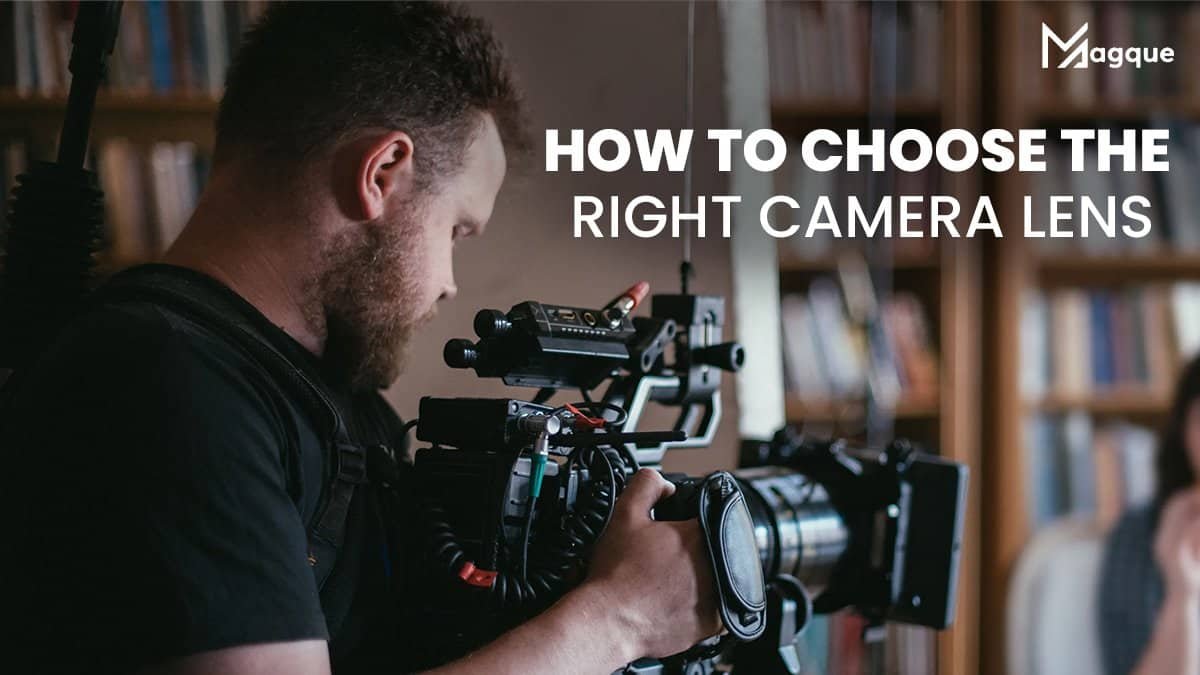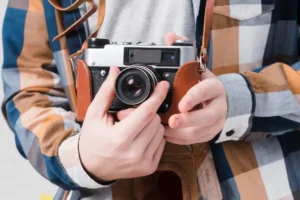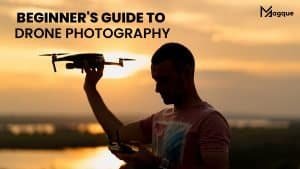If you’re diving into photography, one crucial decision awaits you – selecting the right camera lens. It’s like choosing the perfect pair of shoes for a hike; you want comfort, durability, and the right fit for the terrain. Similarly, the ideal camera lens can significantly impact your photographic journey.
Understanding Your Photography Needs
Before we delve into the nitty-gritty of lens specifications, take a moment to consider your photography style and preferences. Are you into breathtaking landscapes, intimate portraits, or fast-paced action shots? Knowing your niche will guide you in selecting a lens that complements your creative vision.
Decoding Lens Jargon: Focal Length and Aperture
Now, let’s demystify the jargon. The focal length determines the lens’s zoom capabilities. A lower focal length, like 18mm, captures more in the frame, making it perfect for landscapes. On the other hand, a higher focal length, such as 85mm, is ideal for portraits, bringing distant subjects closer.
The aperture, measured in f-stops, affects the light entering the lens. A lower f-stop, like f/1.8, allows more light, making it excellent for low-light conditions and achieving a beautiful background blur (bokeh).
Consider Your Budget
Photography can be an expensive hobby, and lenses are no exception. While it’s tempting to go for the latest and greatest, consider your budget. Fantastic lenses are in every price range, so only break the bank if needed.
Zoom vs. Prime Lenses
Choosing between zoom and prime lens is akin to deciding between a versatile Swiss army knife and a specialized tool. Zoom lenses offer flexibility, allowing you to shoot at various focal lengths. In contrast, prime lenses have a fixed focal length, promoting sharper images and better low-light performance.
Compatibility with Your Camera
Not all lenses fit all cameras. Ensuring Compatibility between your camera body and the lens mount is crucial. Nikon, Canon, Sony, and other manufacturers have specific mounts, so check before purchasing.
Size and Weight Matter
Picture this: you’re on a day-long photography expedition, and your lens feels like a dumbbell. Need to be more ideal, suitable? Consider the size and weight of the lens, especially if you plan on carrying it for extended periods. Strike a balance between functionality and portability.
Reviews and Recommendations
In the digital age, user reviews and recommendations are your best friends. Go beyond the manufacturer’s claims and delve into the experiences of fellow photographers. Look for lenses with consistently positive reviews, considering factors like build quality, image sharpness, and autofocus speed.
Conclusion
Choosing the right camera lens is a blend of art and science, much like capturing the perfect shot. Understand your photography needs, decode the lens specifications, stick to your budget, and consider real-world user experiences. Remember, the ideal lens is the one that aligns with your creative vision and enhances your photographic journey. Happy shooting!
And be sure to explore Magque, your go-to source for the latest and most intriguing updates in the realms of informative tips & reviews!
FAQ
Q1. What Factors Should I Consider When Choosing a Camera Lens?
A. Consider your photography style, focal length, and aperture when selecting a camera lens. Understand your preferences, whether you’re into landscapes, portraits, or action shots. The right lens should align with your creative vision and shooting needs.
Q2. Zoom or Prime Lens – Which is Better for Me?
A. Choosing between a zoom and prime lens depends on your photography preferences. Zoom lenses offer versatility, allowing you to shoot at various focal lengths. On the other hand, prime lenses, with a fixed focal length, are ideal for achieving sharp images and excelling in low-light conditions.
Q3. How does the Lens Aperture Impact my Photography?
A. The lens aperture, measured in f-stops, influences the light entering the lens. A lower f-stop, like f/1.8, is excellent for low-light conditions and creates a beautiful background blur (bokeh). Understanding the aperture helps you capture your photos’ desired lighting and atmosphere.
Q4. Are all Camera Lenses Compatible with any Camera Body?
A. No, not all Lenses fit all Cameras. Ensure Compatibility between your camera body and the lens mount. Different manufacturers like Nikon, Canon, and Sony have specific mounts. Check the Compatibility to avoid purchasing a lens that doesn’t fit your camera.
Q5. How Important are User Reviews in Choosing a Camera Lens?
A. User reviews are crucial when selecting a camera lens. Look beyond manufacturer specifications and delve into real-world experiences. Consider factors like build quality, image sharpness, and autofocus speed. Reviews provide valuable insights from fellow photographers and help you make an informed decision.
Read Also :- DSLR vs Mirrorless Cameras What’s Best for You in 2024













